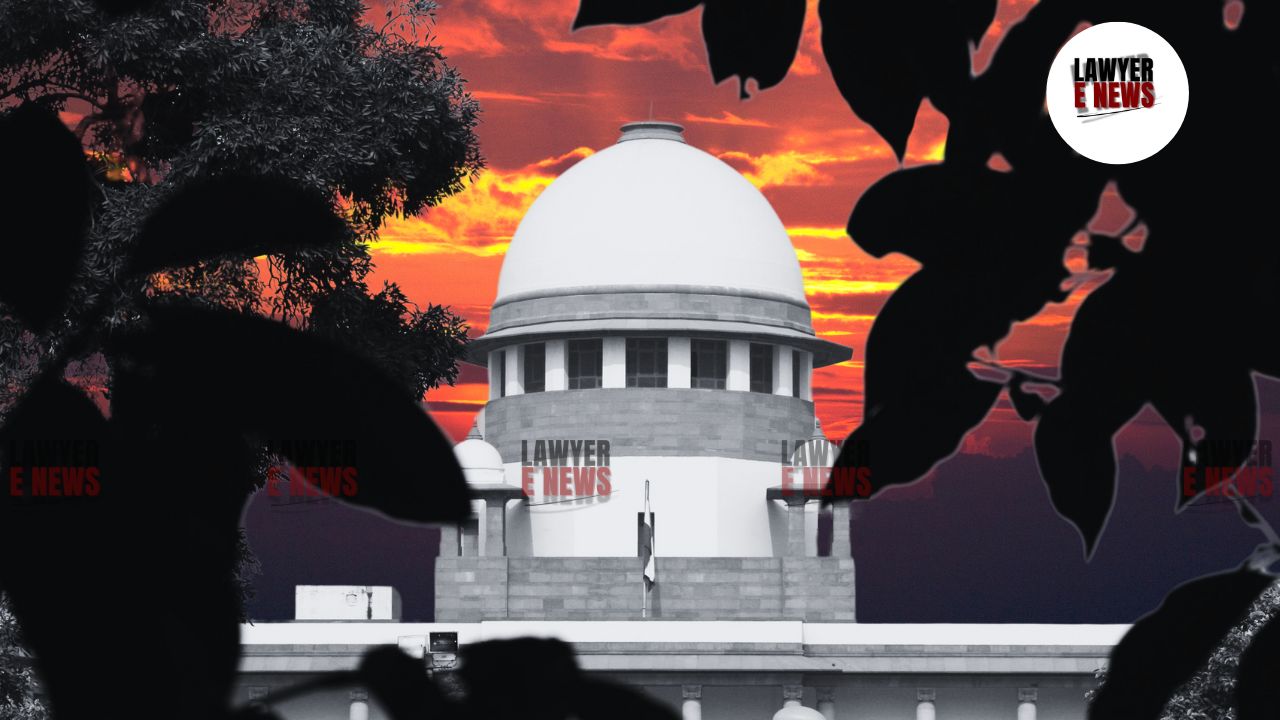-
by Admin
15 February 2026 5:35 AM



Supreme Court of India, in S. Vijikumari v. Mowneshwarachari C., dismissed a husband's appeal seeking revocation of a prior maintenance order and refund of maintenance paid under the Protection of Women from Domestic Violence Act, 2005. The Court ruled that Section 25(2) of the Act only permits modification or revocation of maintenance orders due to a change in circumstances after the order was passed, and not retrospectively.
The case arose when the appellant, S. Vijikumari (wife), filed for maintenance under Section 12 of the Protection of Women from Domestic Violence Act, 2005, after alleging domestic violence. The Magistrate awarded Rs. 12,000 per month in maintenance and Rs. 1,00,000 as compensation on February 23, 2015. The respondent, Mowneshwarachari C (husband), did not initially challenge the order, leading it to attain finality.
Years later, the husband filed an application under Section 25 of the Act, alleging that the wife had fraudulently concealed her employment and sought revocation of the maintenance order and a refund of all payments made. The Magistrate dismissed his application, but the Appellate Court remanded the case for fresh consideration. On further appeal, the High Court upheld the remand order, prompting the wife to approach the Supreme Court.
The crux of the legal issue revolved around whether the respondent-husband could use Section 25(2) of the Domestic Violence Act to seek retrospective revocation of the original maintenance order and demand a refund of maintenance already paid.
Section 25(2) permits the modification or revocation of orders under the Domestic Violence Act if there is a change in circumstances after the order is passed. However, the Court clarified that such changes must pertain to the future and cannot affect past payments or periods preceding the original order. As the Court explained:
"The revocation of an order sought by a party cannot relate to a period prior to the original order being passed."
The Supreme Court ruled that the respondent’s prayers to revoke the order retrospectively and claim a refund were not maintainable under Section 25(2) since no changes in circumstances were demonstrated for the period after the original maintenance order was passed. The Court further noted:
"Section 25(2) is not designed to provide for the setting aside of final orders or refunds of payments already made."
The Court emphasized that the original maintenance order, dated February 23, 2015, had attained finality as the respondent did not appeal it within the prescribed time. The Court held that once an order becomes final, it cannot be reopened unless a subsequent change in circumstances justifies its modification or revocation. Additionally, the Court rejected the husband's claim that the wife had committed fraud by concealing her employment, noting that any such allegation should have been raised earlier.
The Supreme Court found that both the Appellate Court and High Court had erred in remanding the case for fresh consideration, as the respondent’s application under Section 25(2) sought reliefs that were not legally sustainable.
The Court observed that Section 25(2) is prospective in nature, and any modification or revocation of a maintenance order can only operate from the date of the application or a future date determined by the Magistrate. In this case, the husband's request for a refund of maintenance paid prior to filing his Section 25(2) application was deemed inconsistent with the law.
"The respondent's prayers to revoke the original order and recover maintenance paid prior to the filing of the application under Section 25(2) are contrary to the spirit of the provision."
The Supreme Court allowed the appeal, setting aside the orders of the High Court and Appellate Court. The respondent's application under Section 25(2) of the Domestic Violence Act was dismissed, but liberty was granted to file a fresh application for any events postdating the original maintenance order.
Date of Decision: September 10, 2024
S. Vijikumari v. Mowneshwarachari C.
